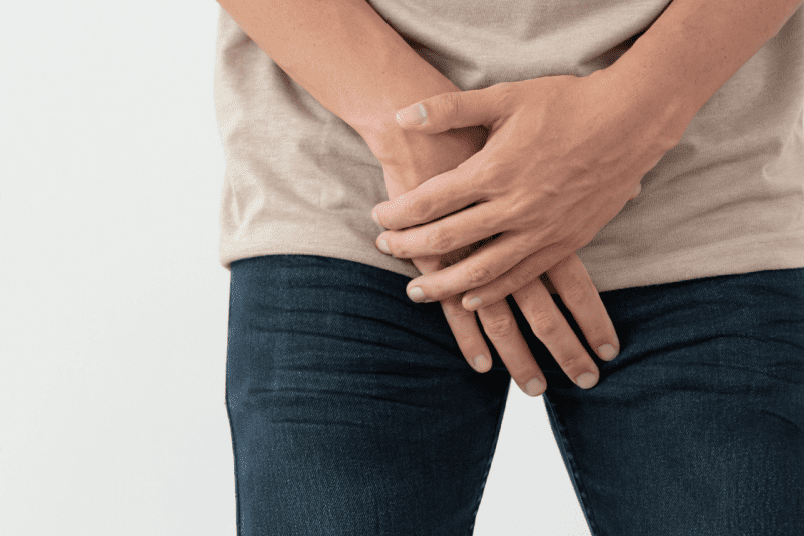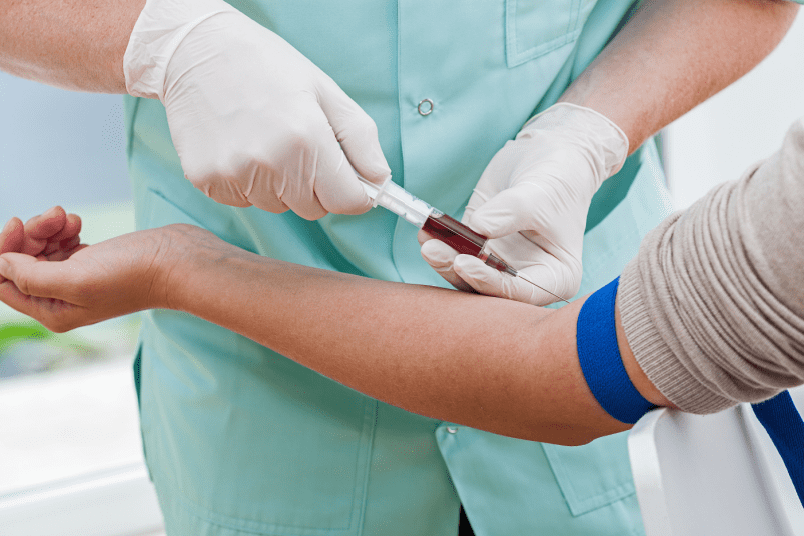Blog > Different Types of Ejaculation Disorders
Different Types of Ejaculation Disorders

Ejaculation disorders are a wide range of medical conditions that can have a significant impact on a man’s sexual health and interpersonal relationships. This blog will explore the various types of ejaculation disorders, their underlying causes, the diagnosis, and the treatment options associated with them, with the goal of providing valuable insight into these complex issues.
What are ejaculation disorders?

The term “ejaculation disorders” is used to describe a complex set of conditions that affect the male sexual reproductive system, resulting in a disruption of the ejaculation process. These disorders can lead to difficulties in achieving and sustaining a pleasurable sexual experience. Although ejaculation is an essential component of the male reproductive system, ejaculation disorders can lead to feelings of frustration and distress, which can have a detrimental effect on both the patient and their partner. It is essential to understand these disorders in order to effectively address the disruption they can cause to the sexual cycle. Not only can they affect the act of sexual intercourse, but they can also have a negative impact on intimacy, potentially leading to strained relationships and a decrease in self-esteem.
Types and causes of ejaculation disorders

Ejaculation disorders consist of a range of conditions that can disrupt the normal ejaculation process. Four primary types of ejaculation disorders include:
Premature Ejaculation (PE): Premature ejaculation is one of the most commonly experienced ejaculation disorders in men. It is characterized by a man ejaculating within 1 to 2 minutes of sexual intercourse or even prior to penetration, resulting in unsatisfactory sexual performance. PE is commonly associated with psychological factors, including anxiety or performance-related pressure, but can also be caused by organic factors such as testosterone and thyroid problems.
Delayed Ejaculation (DE): Delayed ejaculation (DE) is a condition in which an individual is able to ejaculate after an extended period of time leading to exhaustion and mental stress. DE can be caused by psychological factors, medications, or medical conditions including diabetes, spinal cord injuries, multiple sclerosis, etc.
Anejaculation: Anejaculation is referred to as the absence of ejaculation during sexual climax. There are two distinct types of anejaculation: situational (occurring only in certain situations/positions) and total (occurring in all situations). The cause of anejaculation can be attributed to a variety of sources, such as nerve damage, medications, or psychological factors.
Retrograde Ejaculation: Retrograde ejaculation is a type of ejaculation disorder in which the semen is directed into the bladder rather than being discharged from the body. This is usually due to a dysfunction of the urethral sphincter muscle, which regulates the flow of semen. Subsequently, semen may be expelled during urination, resulting in infertility. This disorder can be caused due to a variety of conditions such as prostate gland surgery, bladder surgery, diabetes, multiple sclerosis, or certain medications.
Diagnosis and medical evaluation

Ejaculation disorders are diagnosed by means of a thorough medical examination, which is essential for understanding the underlying causes and developing effective treatment plans. The examination usually starts with a comprehensive medical history and physical exam. Patients are asked to share details about their sexual life, including the length of time they have been experiencing symptoms, psychological or emotional distress, and medications they are taking.
Medical professionals may employ a variety of diagnostic techniques and assessments to understand the particular type and underlying mechanisms of the ejaculation dysfunction. These may include:
Psychological assessments: Psychological factors that may contribute to the onset of the disorder may be evaluated by clinicians through questionnaires or interviews. Common emotional factors that can contribute to the exacerbation of ejaculation problems include anxiety, stress, and relationship problems.
Laboratory tests: Post-ejaculation urine analysis may be conducted to detect the presence of sperm in the bladder, a characteristic of retrograde ejaculation.
Neurological examinations: Ejaculation disorders can also be caused by nerve-related issues, including spinal cord injury or neuropathy.
Blood tests: Blood tests may be conducted to detect any hormonal imbalance that may be a contributing factor to the disorder.
Ultrasound: Ultrasound scans may be utilized to rule out any blockage and evaluate the functioning of reproductive organs.
Treatment options

The treatment of ejaculation disorders is a comprehensive approach that seeks to address both the physiological and psychological causes of the condition. The following are some of the most common treatment options.
Therapy: Psychological counselling or sexual therapy can be very effective, particularly for conditions such as premature ejaculation and delayed ejaculation. These therapies help people cope with anxiety, stress, and performance pressure and provide techniques to enhance their ability to control their ejaculation.
Medications: Medications may be prescribed to treat ejaculation disorders under certain circumstances. For instance, selective serotonin reuptake inhibitors (SSRIs) may be used to treat premature ejaculation due to their ability to delay the onset of ejaculation.
Behavioural techniques: Stop-start technique, pause-squeeze technique, and other behavioural strategies are often recommended for premature ejaculation. These exercises assist individuals in increasing their ability to control their ejaculatory response.
Lifestyle changes: Simple lifestyle modifications, such as avoiding alcohol/tobacco, reducing stress levels, adhering to a healthy diet, and engaging in regular physical activity, may be beneficial in the treatment of ejaculatory disorders.
Medical treatments: If the disorder is caused by an underlying medical condition, such as an infection or prostate problem, treating the underlying condition may help to reduce the issue of ejaculation.
Rarely procedures like Botox to bulbospongiosus muscle, microscopic dorsal penile neurectomy may be considered under experimental settings.
Ejaculation disorders are a variety of conditions that impact the male sexual response cycle, leading to physical and emotional intimacy issues. Understanding and addressing these disorders through accurate diagnosis and personalized treatment is vital for improving one’s sexual as well as overall health.
AndroNeo at NU Hospitals, based in Bangalore, provides modern treatment options for men suffering from ejaculation disorders. The doctors at AndroNeo have many years of experience in the field of reproductive health and are trained to handle even the most sensitive cases with expertise and precision. If you are suffering from ejaculation disorders, get in touch with fertility specialists at AndroNeo Hospitals.
Recent Posts
- Penile Implant Surgery: A Permanent Solution to Erectile Dysfunction from the expert Andrologist in Bangalore
- Testosterone – why is it so important
- Bengaluru’s Leading Expert in Andrology (Male Fertility and Sexual Health) and Prosthetic Urology – Dr Pramod Krishnappa
- Varicocele – The Hidden Cause of Male Infertility
- No Sperm and Its Link to Genetic Factors: An Exploratory Guide
Related Posts
Penile Implant Surgery: A Permanent Solution to Erectile Dysfunction from the expert Andrologist in Bangalore
Penile Implant Surgery: A Permanent Solution to Erectile Dysfunction from the expert Andrologist in Bangalore Living with erectile dysfunction (ED) is not only a physical
Testosterone – why is it so important
Testosterone – why is it so important Testosterone hormone is one of the most important hormones in our body, it is primarily a male hormone
Bengaluru’s Leading Expert in Andrology (Male Fertility and Sexual Health) and Prosthetic Urology – Dr Pramod Krishnappa
Bengaluru’s Leading Expert in Andrology (Male Fertility and Sexual Health) and Prosthetic Urology – Dr Pramod Krishnappa Overview Dr. Pramod Krishnappa is an exceptional Andrology
Varicocele – The Hidden Cause of Male Infertility
Varicocele_ The Hidden Cause of Male Infertility Infertility in men is a problem for millions of couples around the world, and one of the common
No Sperm and Its Link to Genetic Factors: An Exploratory Guide
No Sperm and Its Link to Genetic Factors: An Exploratory Guide Azoospermia, a leading cause of male infertility, occurs when a man’s ejaculate (semen) does
Penile Implant For Erectile Dysfunction: Preparation, During & After Surgery
Penile Implant For Erectile Dysfunction: Preparation, During & After Surgery A penile implant, also called a penile prosthesis, is a treatment method used to treat
